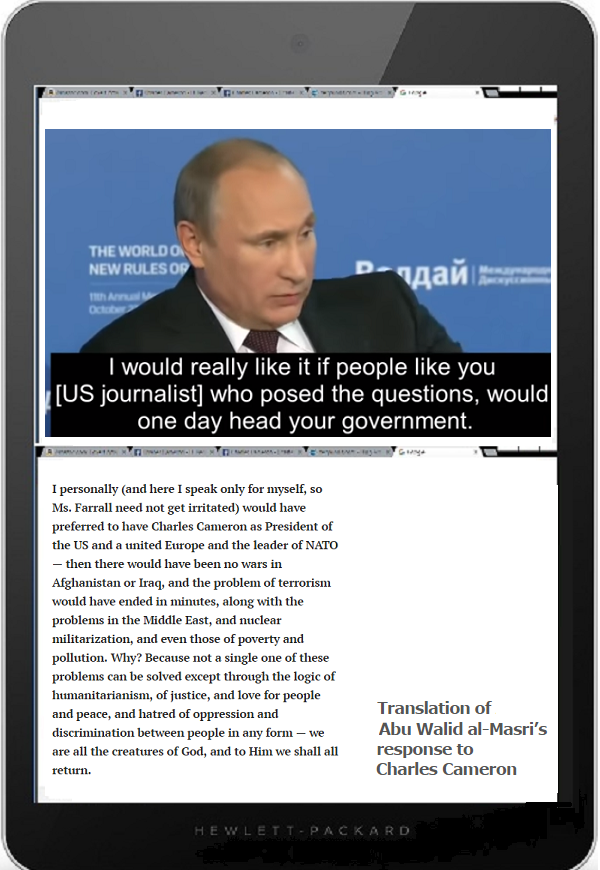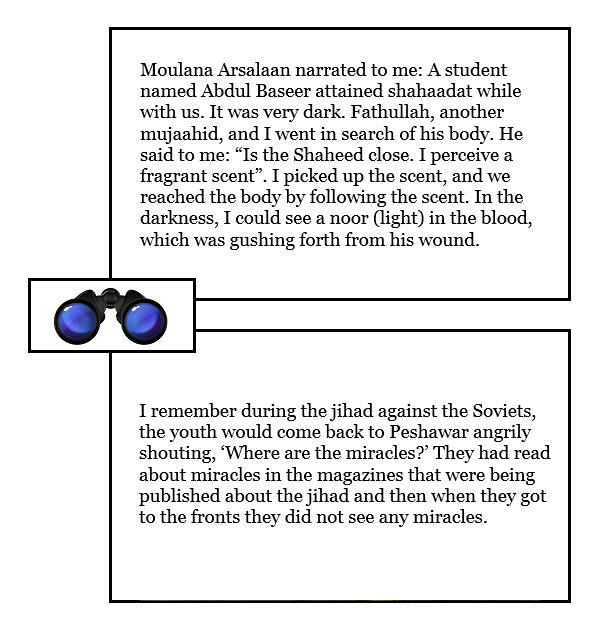Not up for debate: three candidates
Thursday, September 29th, 2016[ by Charles Cameron — a light-hearted, part-musical, part-personal, part-putinesque — counterpoise to the present Presidential electoral season ]
.
You wanna make government a barrel of fun? Vote Dizzy! Vole Dizzy!
Your Politics Oughtta Be A Groovier Thing? Vote Dizzy! Vole Dizzy!
**
Okay, we’ve had a day or two to recover from the first of this year’s Presidential debates, and I’d like to give you a break from the incessant Trump no Hillary no stay home or vote Stein or Johnson or write in or whatever shindig with three possible candidates not on most lists.
One is anonymous. One is myself (ridiculous). And one — the best known of the three, but deceased, alas — plays trumpet, and ran in 1964.
**
No, as far as we know, Vladimir Putin has not expressed a wish for Donald Trump to be President of the US, despite some fraternal noises. Instead, he somewhat cannily answered an unnamed US journalist’s question by wishing she could hold that office (upper panel, below):
So:
Putin’s candidate is, as far as I know, anonymous — though there’s a presumably a journalist somewhere who knows, since she was there at the time, and Putin was responding to her.
**
I probably wouldn’t have given this particular remark of Putin’s a second thought, had Abu Walid al-Masri not wished the same fate on me (lower panel, above).
Here’s how that happened.
I’d been in friendly contact with the noted Australian Federal Police counterterrorism analyst Leah Farrall for a while, when Leah struck up an email correspondence some years back with Abu Walid. The latter was among the first Arabs in Afghanistan, a journalist, a friend of Mullah Omar and bin Laden, and a fierce critic of 9/11. Both Leah and Abu Walid were bloggers, and both deeply interested in the early history and structure of Al-Qaida so, Leah thought, why not talk? And talk they did.
At one point, Leah very kindly invited me to join their conversation. I’m a know your enemy type on my father‘s side (he was a naval warrior) and a love your enemy type on my mentor‘s (he was a monk, and quite the warrior in his own way) — so I wrote to Abu Walid, and he responded:
All Things CT, Charles Cameron to Abu Walid al Masri Zenpundit, Abu Walid al Masri to Charles Cameron
I don’t see myself as US President any time soon — I’m a Brit born and bred, which would rule me out in any case, and a monarchist at that — but Putin’s comment to the journalist reminded me of my own equivalent in Abu Walid’s response to my letter, and gave me a quiet chuckle — hence this post.
More significant than my cameo appearance.. Years later, Abu Walid was released from house arrest in Iran. He — now dropping his nom de guerre and going by his original name, Mustafa Hamid — met in person with Leah in Alexandria, amd after months of conversations they produced an unparalleled joint work, The Arabs at War in Afghanistan (Hurst, 2015).
It is, as I said, without parallel — with a second volume to follow?
**
Okay, back to electoral candidates. How about Dizzy Gillespie? Here’s a belated tribute to the candidate who blue-notes outside the lines:
As blog-friend and jazz-meister Bill Benzon noted recently, Dizzy Gillespie nominated himself. And how!
When I am elected President of the United States, my first executive order will be to change the name of the White House! To the Blues House.
Income tax must be abolished, and we plan to legalize ‘numbers’ – you know, the same way they brought jazz into the concert halls and made it respectable. We refuse to be influenced by the warnings of one NAACP official who claims that making this particular aspect of big business legal would upset the nation’s economy disastrously.
One of the ways we can cut down governmental expenditures is to disband the FBI and have the Senate Internal Security Committee investigate everything under white sheets for un-American activities. Understand, we won’t take no ‘sheet’ off anybody!
You wanna make government a barrel of fun? Vote Dizzy! Vole Dizzy!




